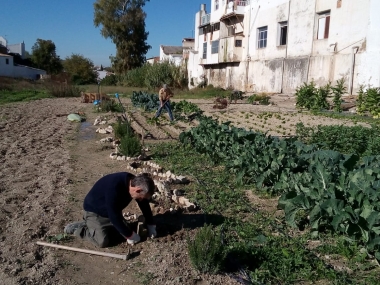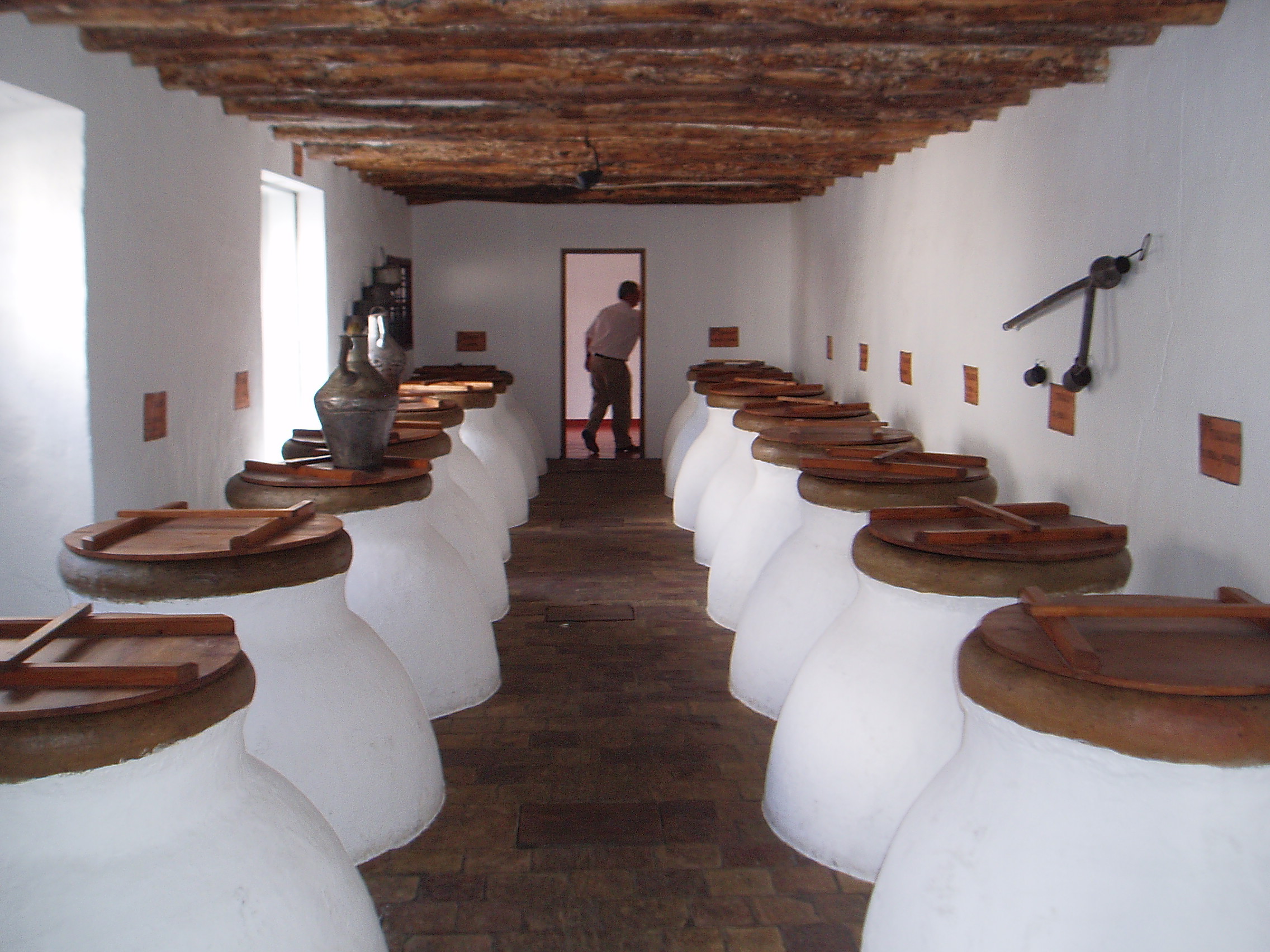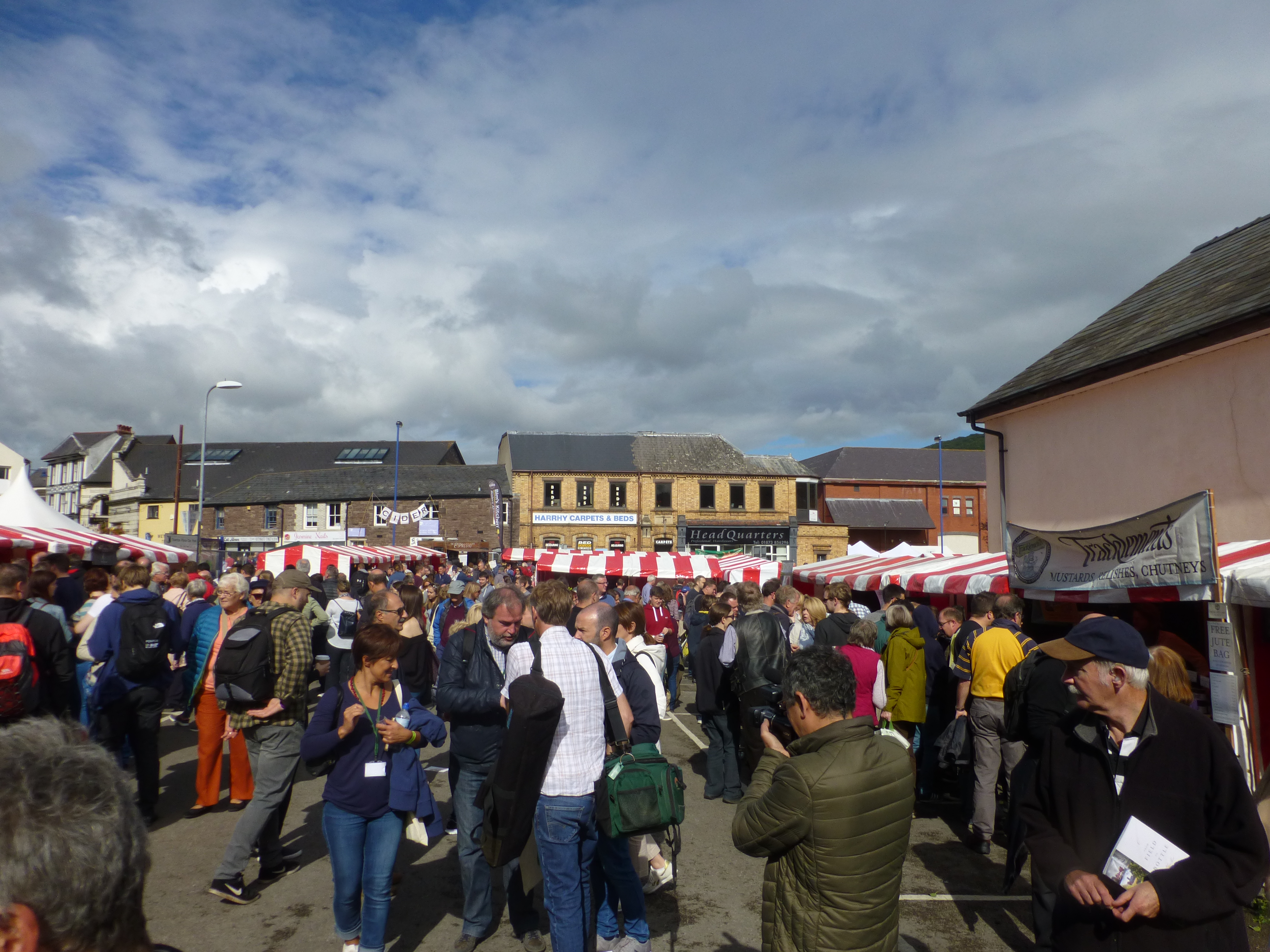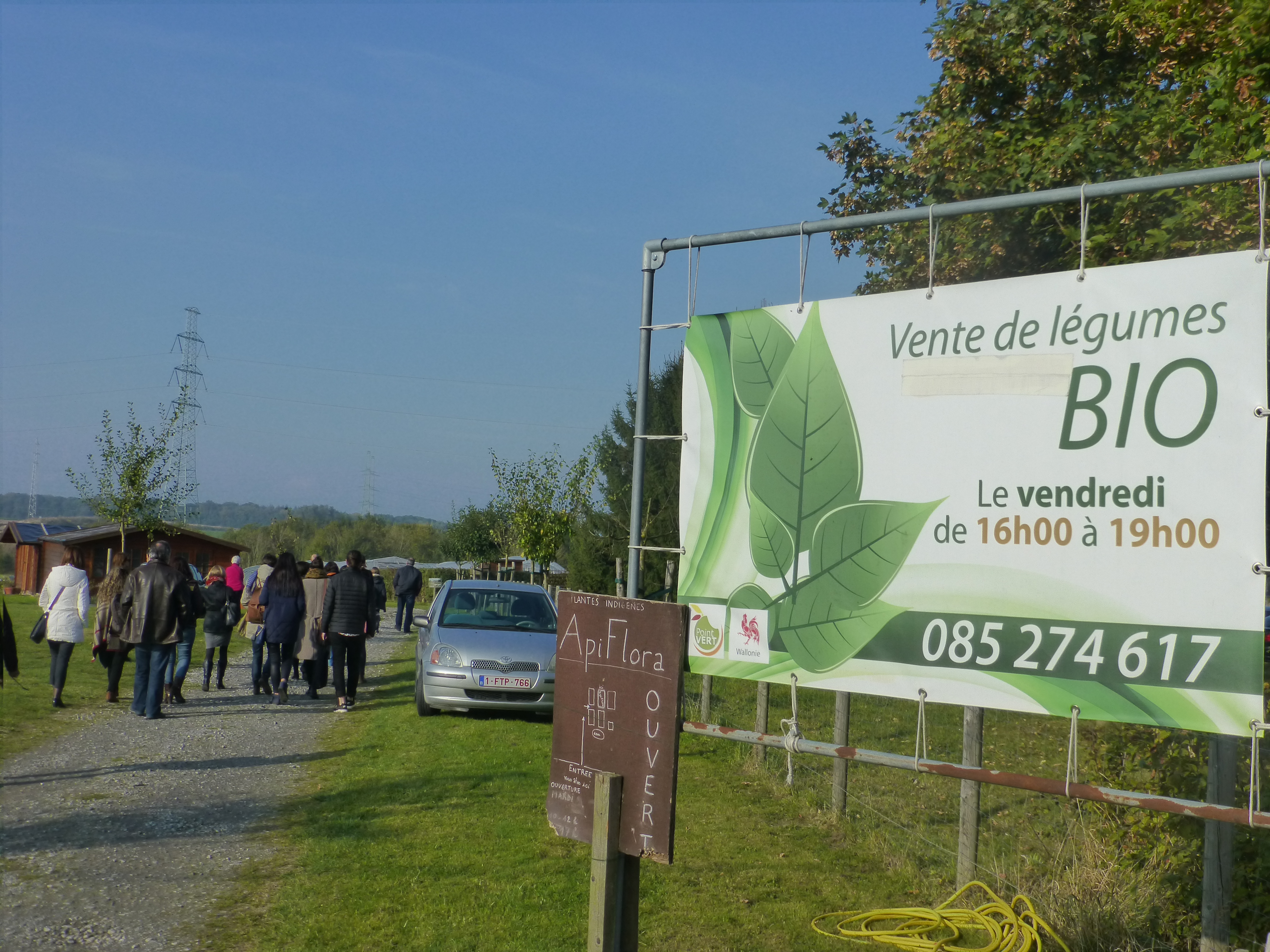How a small Spanish town is revolutionising its local food system
Edited on
17 October 2019Baena (ES) supports sustainable agriculture for a resilient city developement model close to its citizens’ needs, beyond mass production.

Antonio Zafra and Raquel Moreno Vicente were part of the coordination team of the AGRI-URBAN project which was led by the Town Council of Baena. They work in ADEGUA, an association which brings together town councils, civic associations, entrepreneurs and others who want to promote sustainable development in the surrounding region. They talked to the political journalist Jamie Mackay about the organic movement, the unique features of small cities and their experience working with URBACT.
How did you get interested in agriculture?
Antonio Zafra (AZ): I could say I am a rural man but at the same time I love cities. I don’t live in Baena but in a small village of 500 inhabitants with all the demographic problems you can imagine. Most of my family abandoned rural work to go to university, but my roots are in the rural way of life. I love living in small villages. I run a small olive oil production and am involved in organic consumer and producer groups, so I’m a bit of an activist too.
Raquel Moreno Vicente (RMV): I was raised in Baena so I’ve always been surrounded by olive trees and the countryside that produced our food for generations. It wasn’t really until I became a mother, though, that I realised we were buying so many things from far away rather than eating what we were producing. This was a personal revelation. From that moment on I became more aware of food in society, in health, in art, and I saw the potential for change.
How has the food industry around Baena evolved over the past decades?
AZ : Today Baena is a monoculture area, but it wasn’t always like that. In twenty years we’ve lost around 200 hectares that used to be cultivated with fruit and vegetables. The agri-industrial system has won the battle of food production. Most of our olive oil is sold in big containers to other countries, or taken to other cities to be put in bottles. The result is a terrible paradox. This high production rural area is now dependent on food from all over the world to feed its people. Maybe it’s a successful industry, but it’s not a successful system for the population’s health.
: Today Baena is a monoculture area, but it wasn’t always like that. In twenty years we’ve lost around 200 hectares that used to be cultivated with fruit and vegetables. The agri-industrial system has won the battle of food production. Most of our olive oil is sold in big containers to other countries, or taken to other cities to be put in bottles. The result is a terrible paradox. This high production rural area is now dependent on food from all over the world to feed its people. Maybe it’s a successful industry, but it’s not a successful system for the population’s health.
RMV: Another big problem is unemployment. Because of automation, fewer agricultural workers are needed, and when they are, it’s only for a few months a year. This trend demands a reaction. If we want to keep people in the territory and halt depopulation - not only in agriculture - some changes are needed to better balance globalisation and local initiatives.
What has Baena done to promote alternatives?
AZ: One of the earliest steps was an analysis of the composition of the oil which we did with Cordoba university, to map and analyse the territory. Then we created some spaces – including a museum– so visitors and the local population could engage with the culture of olive trees. With the 2008 crisis our priority shifted to the social dimension of the problem. We supported the creation of small social gardens which were really successful at reconnecting people and food at the local level.
How did URBACT help your efforts?

AZ: There are lots of problems when trying to innovate in small cities. Sometimes it’s difficult to find a department or even a single professional working on a topic in a small town or village. Occasionally you don’t even have a councillor in the area. Through AGRI-URBAN we wanted to share expertise. We had 11 cities in our network, but all coming from different starting points. Over time, though, we managed to find a common interest in the food system. We also wanted to promote the importance of the rural urban connection. Lots of small cities are connected with big cities around them so we wanted to discuss how they might interact more effectively.
RMV: The URBACT methodology was an inspiration for us too. If you don’t connect networks with local realities you can’t promote grassroots change. In AGRI-URBAN our local stakeholders had direct access to the experience in other cities, to understand how they might be applied here in Baena. Seeing that connection, coming from European to local and back to European level has been really important in allowing us to make changes.
What were the most inspiring practices shared in the network?
AZ: 40 years ago the municipality of Mollet Del Vallès (ES), in the suburbs of Barcelona challenged the industrial expansion of the city by creating an agrarian area. Today they have a protected natural park of around 500 hectares where they promote organic food and food start-ups. They’re even developing social governance and researching with Barcelona University how to protect biodiversity and collect seeds.
RMV: Fundão (PT) have been really successful in uniting the food sector and promoting change. Their producers have support from a central unit where they can try new things in the way they pack and present their food. We need something like that here. We’re actually working with them now on another project, promoting the use of new technologies in relation to food.
Your plans include social orchards, a food hub and a farming incubator to support young businesses. Which look the most promising at this stage?

AZ: At the moment only 5-10% are being implemented, though some of the proposals just need a small commitment to get going. Making organic canteens in high schools, for example, only needs the school staff and the municipality to be a little more proactive.
RMV: All the political parties in the town council support our plan. There’s no majority at the moment, but some of the manifestos in the elections last month actually included AGRI-URBAN initiatives. What happens next depends on political willpower but also on individuals. If someone has the interest and engagement they can really make things happen.
AZ: We’ve developed a pilot action to remind the politicians of what they approved. It’s a kind of social garden, not for just families but on a bigger scale involving NGOs, ecologist groups and other organisations. There’s a plot in the very middle of the city so nobody can forget about us!
Have you got a message for other small cities working to tackle big issues like these?
AZ: Some intellectuals say the spirit of Europe was created in cities. From a historical point of view maybe it’s true. But many important values in Europe - freedom, sociability, care for the environment – are rooted in rural areas. Personally, I like the idea of a Europe in which we are able to ruralise urban areas and urbanise some rural areas, to exchange the good things we have in both directions. Small and medium sized cities have a unique capacity to connect the two worlds and food is one of the best interconnectors we have. In this age of new communication, I think we can redefine both areas together.
Find out more at https://urbact.eu/agri-urban
 Submitted by Jamie Mackay on
Submitted by Jamie Mackay on




